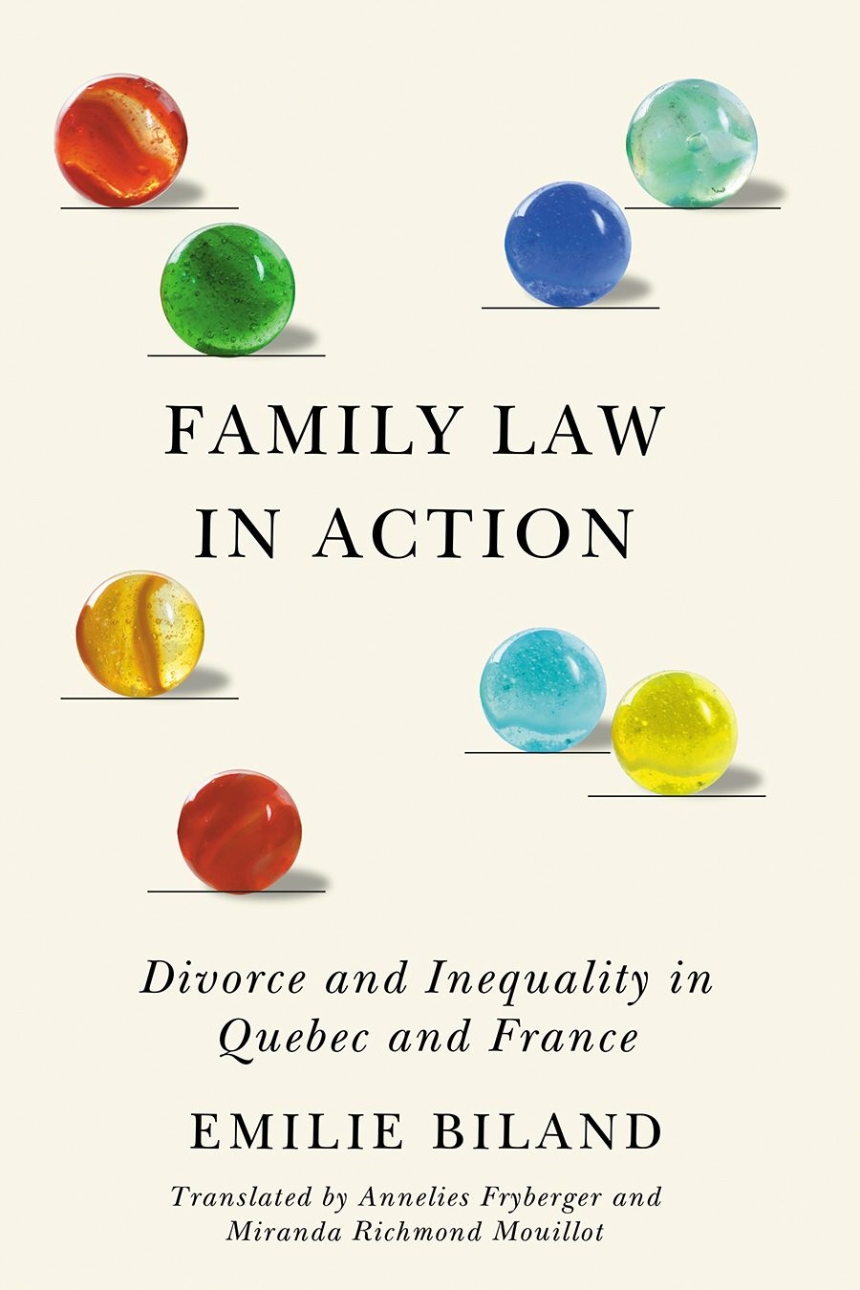University of British Columbia Press
Family Law in Action
Divorce and Inequality in Quebec and France
9780774866446
9780774866392
Distributed for University of British Columbia Press
Family Law in Action
Divorce and Inequality in Quebec and France
An analysis of the class and gender inequalities of separation and divorce in France and Quebec.
The right to divorce is a symbol of individual liberty and gender equality under the law, but in practice, it is anything but equitable. Family Law in Action reveals the class and gender inequalities embedded in the process of separation and its aftermath in Quebec and France. Drawing on empirical research conducted on their respective court and welfare systems, Emilie Biland analyzes how men and women in both places encounter the law and its representatives in ways that affect their personal and professional lives. While gender inequality is less pronounced in Quebec than in France, and class inequality is starker, in both national contexts inequalities after breakups are driven by the same three mechanisms: access to the law and justice, interactions with legal professionals, and the ways these two factors shape lifestyle and standard of living. Family Law in Action is a rigorous but compassionate study that encourages governments to make good on the emancipatory promise enshrined in divorce law.
The right to divorce is a symbol of individual liberty and gender equality under the law, but in practice, it is anything but equitable. Family Law in Action reveals the class and gender inequalities embedded in the process of separation and its aftermath in Quebec and France. Drawing on empirical research conducted on their respective court and welfare systems, Emilie Biland analyzes how men and women in both places encounter the law and its representatives in ways that affect their personal and professional lives. While gender inequality is less pronounced in Quebec than in France, and class inequality is starker, in both national contexts inequalities after breakups are driven by the same three mechanisms: access to the law and justice, interactions with legal professionals, and the ways these two factors shape lifestyle and standard of living. Family Law in Action is a rigorous but compassionate study that encourages governments to make good on the emancipatory promise enshrined in divorce law.
320 pages | 8 tables | 6 x 9 | © 2023
Law and Legal Studies: Law and Society
Sociology: Sociology--Marriage and Family
Reviews
Table of Contents
Introduction
1 Why the Liberalization of Divorce Leads to Unequal Access to Justice
2 How Gender and National Context Shape the Legal Profession
3 The Legal Encounter as a Situated Nexus of Power
4 How Family Justice Frames Unequal Parenthoods
5 Family Law and the Welfare State: Intertwining Economic Inequalities
Conclusion
Notes; References; Index
1 Why the Liberalization of Divorce Leads to Unequal Access to Justice
2 How Gender and National Context Shape the Legal Profession
3 The Legal Encounter as a Situated Nexus of Power
4 How Family Justice Frames Unequal Parenthoods
5 Family Law and the Welfare State: Intertwining Economic Inequalities
Conclusion
Notes; References; Index

